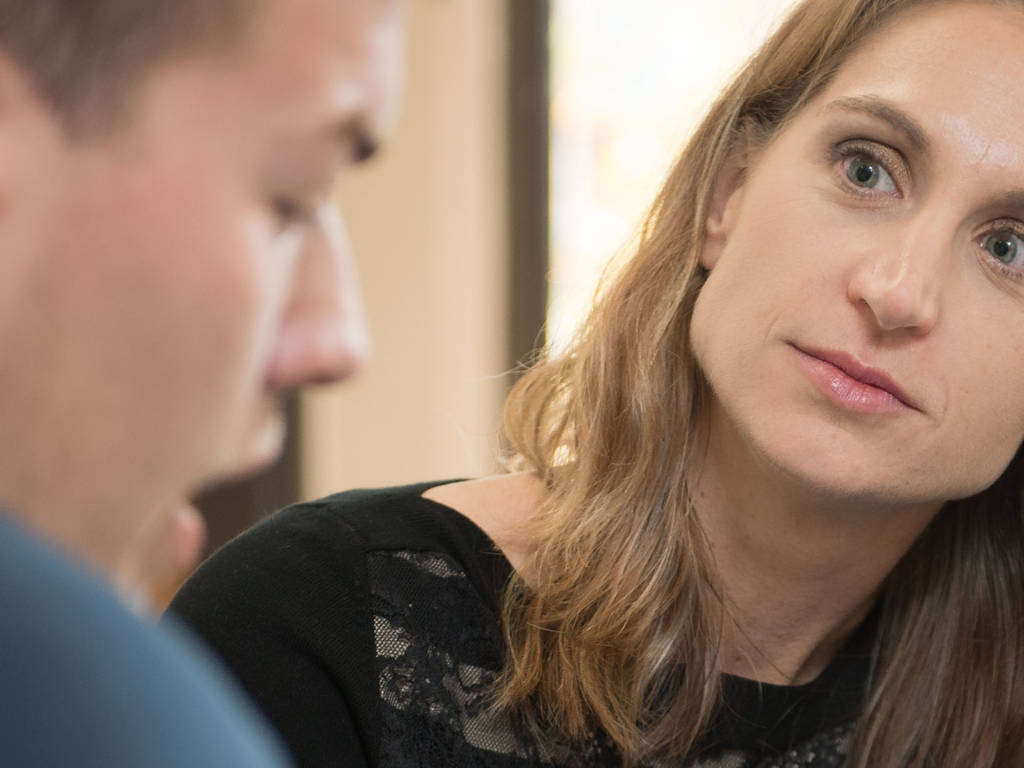This online training will provide you with the most-up-do-date information about Motivational Interviewing and how you can help clients make positive and lasting changes in their lives.
| Series | Conversations about Change |
|---|---|
| Next Session | Nov. 25, 2025 – Dec. 16, 2025 |
Create positive lasting change for your clients
How can Motivational Interviewing help you help patients with "hard to change" attitudes and behaviors? Motivational Interviewing (MI) is a well-established evidence-based approach to promoting positive behavior change. Shown to be effective across a variety of problem behaviors and populations, MI has become a highly popular and sought-after approach by professionals working in diverse practice settings such as behavioral health, medicine, corrections, and schools. Why would I want to learn Motivational Interviewing? Not only is MI the most effective way for you to assist patients to change, it can also reduce frustration and stress.
While you learn to maximize your skills in helping people to change their behaviors, you will also learn to minimize situations that get you into power struggles with your patients. This virtual training will introduce concepts and foundational skills involved in using MI. Participants will experience the course content through short lecture, video, and real-play. You will leave with a clearer sense of what MI will do for you and your clients.
Learning Objectives:
• Learn the definition of MI and explore and discuss the benefits of learning MI
• Become acquainted with relevant evidence of MI effectiveness in your practice settings
• Explain the 4 processes in Motivational Interviewing
• Define ambivalence through recognizing “Change Talk” and “Sustain Talk”
• Practice ways to effectively elicit “Change Talk”
• Recognize and describe the “MI Spirit”
• Observe and practice key listening skills, including reflections and giving advice/information
• Recognize when to use the skills of affirmations, open-ended questions, and summaries
• Learn ways to continue integration and personalization of MI into your work

Who should attend
Behavioral Health Professionals, Clinical Therapist, Educators, Health Care Providers, Health Education Specialists, Home Health Workers, Human Services Professionals, Nurses, Physicians, Physical Therapists, Psychologists, Public Health Professionals, Social Workers and other professionals that want to effectively change problem behaviors with their patients.
Instructors
-

Kay Eibl is a licensed professional counselor with over 14 years of experience counseling individuals with disabilities and mental health concerns in both private and public settings. Her passion for fostering growth extends to her current role as a full-time psychology instructor at Waukesha County Technical College. With a passion for the evidence-based practice of Motivational Interviewing, in 2016, Kay became an active member of the Motivational Interviewing Network of Trainers (MINT), an international association of over 1000 MI trainers across the globe. She has had the privilege of facilitating hundreds of training workshops on Motivational Interviewing (MI) over the last decade, helping learners find new ways to support and motivate others. Kay is passionate about equipping all types of professionals to become the best listeners they can be, and she loves opportunities to help clients move toward positive, lasting behavior change in their lives.